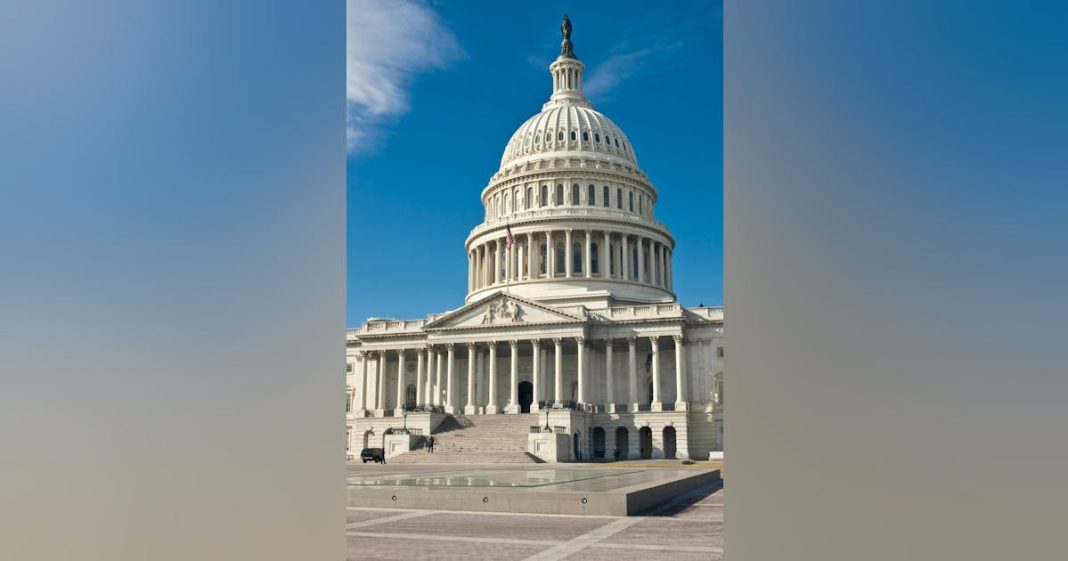A bill just introduced into the U.S. Senate by Senators Sheldon Whitehouse (D-Rhode Island) and Bill Cassidy, M.D. (R-Louisiana) is earning praise from the leaders of APG, America’s Physician Groups, a leading association working to advance value-based contracting in the U.S. healthcare system. The “Pay PCPs Act” is intended to address primary care challenges and reform physician payment models.
A press release published jointly by the offices of Senators Whitehouse and Cassidy on May 15 began thus: “As part of their ongoing work to address primary care challenges and reform physician payment models, U.S. Senators Sheldon Whitehouse (D-RI) and Bill Cassidy, M.D. (R-LA) released a Request for Information (RFI) to accompany the introduction of the senators’ bipartisan Pay PCPs Act, legislation to better support and improve pay for high-quality primary care providers.” And it quoted the two senators as stating that “Primary care is a critical part of the health care equation. Overwhelming evidence shows that primary care both improves health outcomes for patients and drives down health costs. There are many issues to address in primary care, and we look forward to receiving feedback on our legislation through the RFI to make a meaningful difference to health care success.”
The press release continued by stating that “The U.S. spends more on health care as a share of its GDP than peer countries, but U.S. life expectancy is below that of its peer nations—and falling. Three in ten people report not having a usual source of primary care, and reports find the U.S. will face a shortage of between 17,000 and 45,000 primary care doctors over the next decade. Senator Whitehouse and Dr. Cassidy’s bipartisan legislation aims to head off this expensive primary care shortage while also improving Medicare beneficiaries’ health outcomes and helping primary care providers lower health costs. The Pay PCPs Act would task the Centers for Medicare & Medicaid Services (CMS) with establishing hybrid payments to reward primary care providers who provide the best care to their patients — care that reduces patients’ emergency visits, hospitalizations, excess specialist services, and other big cost drivers — and reward patients with better health outcomes. The bill would provide Medicare beneficiaries with reduced cost-sharing for certain primary care activities and services, and would also create a new technical advisory committee to help CMS more accurately determine Fee Schedule rates.”
The press release went on to quote Susan Dentzer, president and CEO of APG, America’s Physician Groups, as stating that “We at America’s Physician Groups represent roughly 360 organizations committed to providing patient-centered, coordinated health care that is accountable for costs and quality. We can’t achieve this goal without a strong basis in advanced primary care, and outside of value-based payment models, the current structure of Medicare fee-for-service physician payment doesn’t adequately support the model, and in fact, undermines it. We’re excited to see this new plan for a hybrid form of Medicare payment that will combine prospective, per-member-per-month payments with fee-for-service,” Dentzer said. “This approach will enable many smaller physician practices not only to survive the current headwinds facing primary care, but also to build the infrastructure that they will need to thrive in value-based models – the direction in which the nation’s health care system must continue to move. We also applaud the move to reduce copayments from Medicare beneficiaries for vitally important care coordination services. America’s patients, doctors, and the nation as a whole would be better off with this overall approach, and we look forward to working with policy makers to embed it in law and see it flourish in practice.”
Among other things, the text of the bill states that, “Subject to the preceding provisions of this subsection, the total prospective, per-member-per-month payment… may represent between 40 and 70 percent of expected annual total allowed charges derived from the Medicare physician fee schedule for primary care providers of services and suppliers; should be at least actuarially equivalent to the applicable physician fee schedule amounts for the services included within the total prospective, per-member- per-month payment; and should be calculated based on historic Medicare payments for those services which would be included as part of the prospective, per-member-per-month payment. (B) APPLICATION OF CERTAIN FACTORS.— The Secretary may consider applying percentages different from those specified in subparagraph (A) for different types of primary care 25 providers based on factors such as historical fee-for-service revenue patterns or quality performance of the provider.” With regard to risk adjustment, and referring to the Secretary of Health and Human Services,” the bill states that “The Secretary may assess the need to risk adjust the prospective, per-member-per-month payment and develop appropriate risk adjustment methodologies, taking into consideration only those factors that predict levels of primary care service utilization. Risk adjustment methodologies may incorporate clinical diagnoses, demographic factors, and other relevant information such as social determinants of health.”
Among other elements, the bill’s text states that “Quality measures may be identified using existing measures,” including patient experience, clinical quality measures, and utilization measures, including rates of emergency department visits and hospitalizations, as well as efficiency in referrals.
The full text of the bill can be found here. And the RFI (request for information) can be found here.






